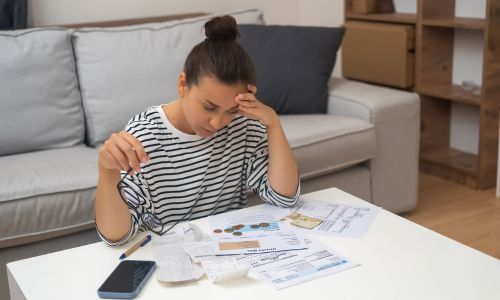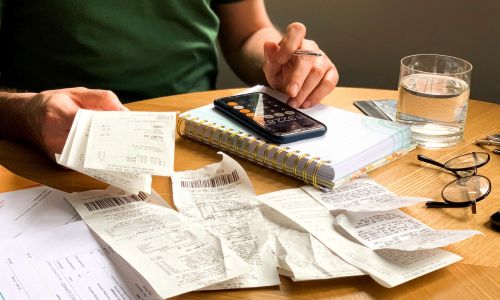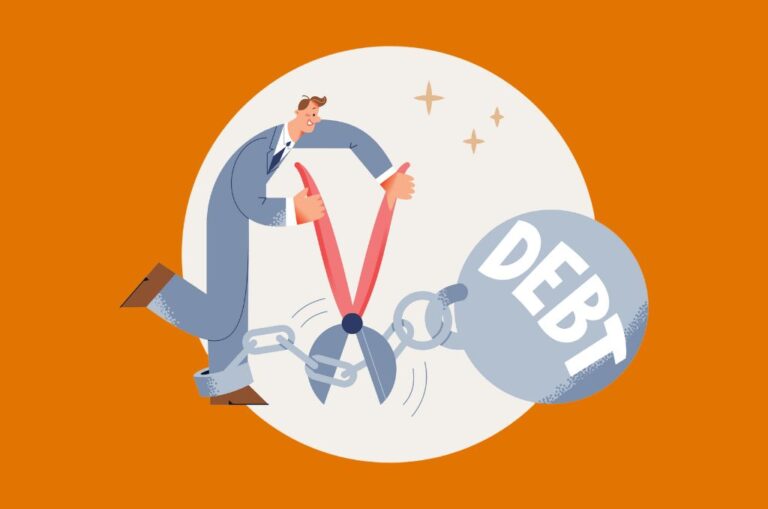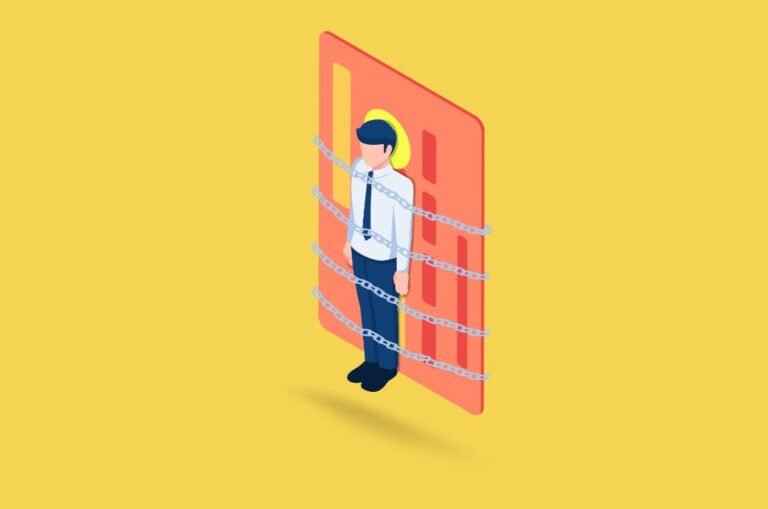How to manage debt after the holidays? It’s a big question all on its own, especially when the budget is tight. (And whose isn’t?) Small or large, every debt needs to be managed to prevent it from snowballing out of control. Small debts are easier to manage. Just hold steady with your payments – making sure that the interest doesn’t get away from you. On the flip side, larger debts can be tricky to handle, especially when you have debt in several places. Knowing how to manage debt is important, especially after the holidays.
13 Best Tips To Manage Your Debt After The Holidays
Here are some tips to manage debt after the holidays:-
1. Know How Much Is Left

To learn how to manage debt after holidays, start by creating a budget. Make a list of all your debts and include the total amount of the debt, creditor, interest rate, due date, and monthly payments.
When everything is in one place, it’s easier to look at the big picture and start balancing short and long term goals. Update your list every month as the total amount of debt changes.
2. Prioritize Your Debts
Credit cards are a great place to start paying off debt, since credit cards have higher interest rates than any other debt. One way to manage debt is to pay off high-interest debts first. This way, your debt doesn’t end up costing more in the long run.
Use your debt list to rank and prioritize your debts. You can also take the “debt snowball” approach and start by paying off the smallest debt first, rather than the debt with the highest interest rate. It may cost a little more in the long term, but crossing that debt off your list can boost your confidence and encourage you to keep going!
3. Create A Bill Payment Calendar
A bill payment calendar can be helpful for avoiding late payments (or forgetting payments all together). Write the amount of each bill payment on your calendar after the due date. Next, fill in the date of each paycheck. You can also use your bill calendar to track your paychecks.
4. Maintain Accuracy While Paying Bills

Delays in payments make it even more challenging to pay off your debt. And if you do so, then you’ll have to bear the consequences and need to pay a late fee for every missed out payment. Moreover, if you forget to pay two payments continuously, your finance and interest rate will also rise. If you’re using a calendaring system on your smartphone or desktop, mention your payments there and set an alert for the outstanding payments.
In case if you forget to make a payment, do not wait till the next coming due date to clear your bills; by then, it can get filed under the credit bureau. We will suggest you make your payments as soon as you recall that you have missed paying off your debts.
5. Keep An Emergency Fund
If you don’t have access to your savings, you would have to go into debt to cover emergency expenses. A small emergency fund will also cover your small expenses from daily work. It would help if you worked on building a small emergency fund, and for this, $1000 is a good place from where you can start.
Once you get that, make it your objective to create a bigger fund than before, such as $2000. Typically you wish to have a backup of around three to six months of your expenses.
6. Initiate By Making Little Payments

When you’re trying to manage debt after the holidays, you want to make larger payments on debt to get ahead of the interest rates.
However, if you can’t pay more, make sure you’re making the minimum payments. Minimum payments may not give you a lot of momentum, but they help you dodge late fees and avoid dings on your credit score.
7. Consolidate Debt With A Loan
If you’re unsure how to manage debt after holidays, consider consolidating your loans. It is one of the best ways to manage debt, and it also becomes fruitful for you to have numerous interest rates and tenors debts.
Make sure that you’ll use a nominal ROI on a personal loan to consolidate your data into one payment only. These will make your work easier and provide you with enough time to clear out your debts.
8. Stick To Your Budget

After the festivities are over, keep an eye on where your money flows in each month. Make sure that every penny is going towards helping you achieve your goals.
While you’re trying to manage debt after the holidays, try to keep your budget a little tighter than normal, and plan to reward yourself in a big way after those debts are all paid off.
9. Hold On Your Little Luxuries
After the indulgence of holidays, it might be a superb idea for your bank account to make a few changes in your regular lifestyle. Thus, we bring some things on which you can down on – or out fully:-
(i) Minimize the number of cigarettes you intake per day: It will easily save money for you because you are not required to buy a new pack frequently.
(ii) Prepare lunch at home: Ready-made lunches can add up quickly, but purchasing bread and sandwich making and filling at home can save cash that can benefit you to cover your costs after the holidays.
(iii) Reduce your takeaway orders: Buying food to recreate takeaway dishes to your home is healthier and cheaper too. Also, you might even learn some fresh recipes to enjoy at home forever.
(iv) Skip the bar: Moving out to socialize every weekend is of great joy but not so good for you to maintain your bank balance. Invite your friends to your home and share a cheaper bottle of wine to save some extra cash for each month.
10. Look For Cheaper Alternatives

You’ve probably set a few New Year’s resolutions, and reviewing your cost of living fits right in with those. Load up a few comparison websites and look for better deals on insurance, utilities, streaming services, and more.
Challenge yourself to bring down the cost of everything you buy, even if it’s just by a couple of cents. You’ll be surprised at how quickly everything adds up!
Curious how others are crushing their budgets?
Join our Facebook group where like-minded individuals are eager to share tips, celebrate wins, and tackle challenges together. We’re all learning and growing, supporting each other every step of the way.
11. Return Or Sell Any Unwanted Presents
It might sound strange, but we all get Christmas gifts like this. Either you already have it, you didn’t like it, or someone double-gifted something to you. These can be sold or returned to earn some extra cash. Then you can put that money towards managing holiday debt.
12. Stay Healthy

It is crucial to have control over our finances; we’re required to take a back step after the festivals get over. Make sure that we’re taking care of ourselves also. Christmas can make any financial challenges that you might be having to feel worse, possibly leading to anxiety and depression. Remember to take some time for yourself and or talk to someone you trust about all your financial worries that you might have.
13. Start Planning For Next Holidays
It’s never too early to plan for next Christmas, especially if you need to manage debt. Start saving for next Christmas now, even if it’s only a little bit. Better yet, start investing and let your money make money!
Conclusion
Debt can feel overwhelming, but you can do this. Holiday debt is often something you take on to show others you care about them, but managing debt is a way to show you care about yourself. Drowning in debt keeps you constantly anxious, stressed, and just a little too far from your financial goals. Paying off that debt can allow you to start taking better and better control of your finances, so you can meet goals you’ve always dreamed of.
So, let me ask you this: Do you really want to be the only one missing out on money-saving tips and tricks that could fill your pockets? Don’t be that person! Subscribe to our newsletter and stay in the loop.
Did you take our Reader Survey? If not, it only takes 1 minute and you can take our survey here.
FAQs
Make a plan, focus on paying off high-interest debt first, and cut extra expenses.
Use methods like snowball (smallest debt first) or avalanche (highest interest first).
Stick to a budget, avoid impulse spending, and follow the steps in my ebook for a fresh start!









